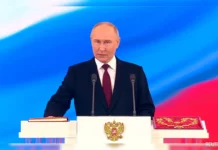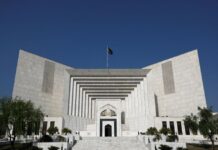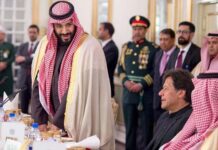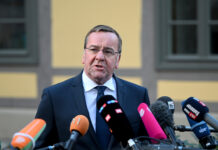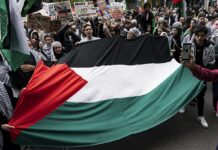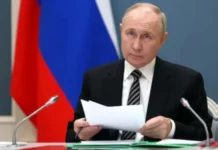 COLOMBO: Sri Lankan President Mahinda Rajapaksa hit back on Thursday against allegations of war crimes which are set to overshadow this week’s Commonwealth summit, saying he had “nothing to hide” from his critics.
COLOMBO: Sri Lankan President Mahinda Rajapaksa hit back on Thursday against allegations of war crimes which are set to overshadow this week’s Commonwealth summit, saying he had “nothing to hide” from his critics.
Rajapaksa, who will chair the three-day summit in Colombo that begins November
15, told reporters he was ready to confront the likes of Britain’s Prime Minister David Cameron but would not be lectured by anyone.
Prime Minister Manmohan Singh had earlier decided to skip the conference after political parties in Tamil Nadu raked up the issue of killing of Tamils in Sri Lanka and the failure of the Sri Lankan government to devolve adequate powers to the Tamil-dominated Northern Provincial government in Jaffna, saying his presence would give legitimacy to Rajapaksa’s “crimes”.
Canadian Prime Minister Stephen Harper and Mauritius Prime Minister Navin Chandra Ramgoolam also called off their participation in the summit citing poor human rights record of Sri Lanka. Cameron did not agree with heads of government boycotting the summit, saying one can express strong views only by being present.
Rajapaksa has been under fire from rights groups and UN bodies over his refusal to allow an independent investigation into the finale of the conflict, which pitted ethnic Tamils against the majority Sinhalese government.
“We are very open, we have nothing to hide,” the president, who is himself Sinhalese, told reporters on the eve of the summit.
Rajapaksa said he was ready to meet Cameron to discuss allegations that up to 40,000 ethnic Tamil civilians were killed by Sri Lankan forces in the closing stages of the 37-year conflict in the island’s north.
“I will be meeting him and we will see what (happens), I will also have to ask some questions,” said the president, who visibly bristled and raised his voice as he answered questions from reporters.
“We have a legal system in Sri Lanka,” he told the press conference.
“We have a human rights commission, now the Commonwealth is ready to strengthen it. If there are any violations, we will take actions against anybody.”
At least 100,000 people lost their lives in the conflict Sri Lanka.
As well as the allegations against government forces, Tamil Tiger rebels — who were known for their trademark suicide bombings — are also accused of killing thousands of people.
Cameron, who intends to travel to the war-torn northern Jaffna peninsula, has said he wants to have “tough conversations” with Rajapaksa during the summit.
Cameron, who stopped off in India on his way to Sri Lanka, reiterated calls for a “proper investigation” into the last stages of the war.
The British premier, who has rejected calls to join the boycott, will be the first foreign leader to visit the north since Sri Lanka’s independence in 1948.
“There needs to be proper enquiries into what happened at the end of the war, there needs to be proper human rights, democracy for the Tamil minority in that country,” he said in comments broadcast by India’s CNN-IBN network Thursday.
“There’s always a case for not going somewhere but I think actually we will get further by going and having conversations with the Sri Lankans about what needs to happen and shining a light on some of the issues and problems that are there.”
Kamalesh Sharma, the Commonwealth’s Secretary-General, denied suggestions the organization had been ineffective in dealing with allegations against the summit hosts.
Asked whether Sri Lanka’s alleged right abuses made a mockery of the Commonwealth’s charter of shared values, the former Indian diplomat said the organization had made progress by engaging with Rajapaksa’s regime.
Meanwhile, The Guardian newspaper reported that UK officials had made clear Cameron expected a meeting with the Sri Lankan President where he would raise the issues of allegations about the army’s actions in the country’s 25-year civil war, the treatment of journalists, and the slow pace of an investigation into the murder of the British former Red Cross worker Khuram Shaikh.
A direct meeting with Rajapaksa has been scheduled but on Wednesday night Keheliya Rambukwella, Sri Lanka’s media minister, warned Cameron could not make demands of the country like it was a colony.
“You think someone can just make a demand from Sri Lanka… It can be a cordial request. We are not a colony. We are an independent state,” Rambukwella told BBC.-PTI

